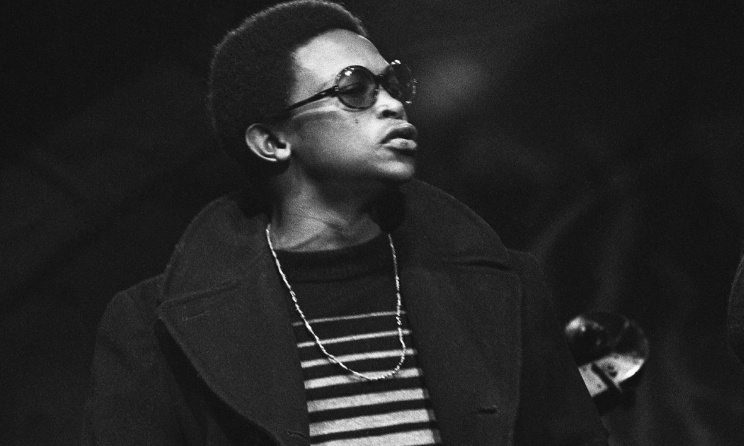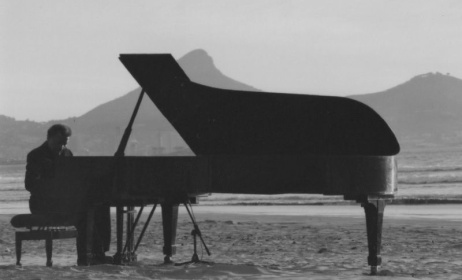Bra Hugh was ‘last man standing’
Hugh Masekela, or Bra Hugh as he was affectionately known, was a compassionate musician who blew into a horn and made magic. It was a combination of his musical genius and political activism that made him a legend in the eyes of many. Not only did he inspire people to get up and dance, he also stimulated conversations about current affairs in both pre- and post-apartheid South Africa.
 Hugh Masekela at the 1967 Monterey International Pop Music Festival. Photo: Michael Ochs Archives
Hugh Masekela at the 1967 Monterey International Pop Music Festival. Photo: Michael Ochs Archives
Masekela, who was born in the northeastern town of Witbank, became a member of the Huddleston Jazz Band after receiving his first trumpet from Anglican priest and human rights activist Trevor Huddleston. Masekela’s love for the trumpet was inspired by the 1950 musical drama Young Man With a Trumpet and he went on to to perfect his skills under the mentorship of Johannesburg Native Municipal Brass Band leader Uncle Sauda.
Masekela’s propensity for the wind instrument saw him take part in multiple collaborative projects in the 1950s. In 1959 he was cast as a band member in the musical King Kong alongside future greats such as Miriam Makeba, Caiphus Semenya, Letta Mbulu, Jonas Gwangwa, Kippie Moeketsi and Thandi Klaasen.
Bra Hugh went into self-exile in New York in 1960, a year before King Kong went to London. He enrolled in the Manhattan School of Music and immersed himself in the spirit of the New York jazz scene by watching and mixing with jazz greats such as John Coltrane, Thelonious Monk and Miles Davies.
Masekela went on to release his debut album Trumpet Africaine in 1962. In 1967, he made a notable appearance at the Monterey Pop Festival, where he shared the stage with Otis Redding, Ravi Shankar, The Who and Jimi Hendrix. During this time he befriended Harry Belafonte. While in the US in 1964, Masekela was married to his King Kong co-star Makeba, but the union lasted only two years.
The flugelhornist’s was propelled further into worldwide fame after he released the acclaimed song ‘Grazin’ in the Grass’ in 1968. The single reached No 1 on the Billboard Hot 100 chart.
As an activist, Masekela was well known for his devotion to the unification of Africa. This shaped him as an advocate of African Renaissance across the continent. He co-organised the Zaire 74 festival with American record producer and close friend Stewart Levine. The festival coincided with the Rumble in the Jungle boxing match between Mohammed Ali and George Foreman.
Masekela was also known for collaborating with African artists in his pursuit to shape a pan-African music vision. He performed covers of songs by other African artists such as Fela Kuti.
“Papa Hugh Masekela was a brother from another mother to Fela and I used to love watching him and listening to him at Fela’s Shrine whenever he came in to sit with us,” former Fela Kuti band member Dele Sosimi told Music In Africa from London.
“Fela had a lot of time for him and was very supportive during his exile, which led to Hugh doing a version of Fela’s ‘Lady’. He was revered for his music, politics and social comments. We all loved him and the stance he chose. He was the last man standing.”
Also speaking to Music In Africa, Malawian singer Lucius Banda said: “I am saddened by the death of Hugh Masekela. He was one of the standing pillars of African music. We were looking up to Bra Hugh as a pioneer. He paved the way for African music. It’s very sad to hear that he has passed away.”
Masekela’s dedication to the development of music is still evident today. In 1985 he set up the Botswana International School of Music (BISM), an event that still takes place in the southern African country. It offers workshops and a collaborative space for artists.
Masekela returned to his homeland in 1990 after the unbanning of the African National Congress. Four years prior to his return, he released the song ‘Bring Him Back Home’ dedicated to Nelson Mandela, who was imprisoned on Robben Island for 27 years until 1990. It's as if both great men returned to South Africa at the same time.
Back in South Africa, Masekela found a way of adapting his sound to younger audiences. He collaborated with Afro-pop singers such as Thandiswa Mazwai as well as hip hop sensation Riky Rick.
He continued his efforts to bring Africans together through his project No Borders on which he featured Zimbabwean legend Oliver Mthukudzi and many others.
“Working with Bra Hugh was a tremendous honour and an unimaginable experience,” Masekela’s sound engineer of seven years, Garrick Van Der Tuin, told Music In Africa. “I learnt some of the most important lessons of my trade and laughed more than ever. He gave us everything he had, show after show, album after album, and he transcended many borders to do so. I take my hat off to you, Bra Hugh.”
























Commentaires
s'identifier or register to post comments